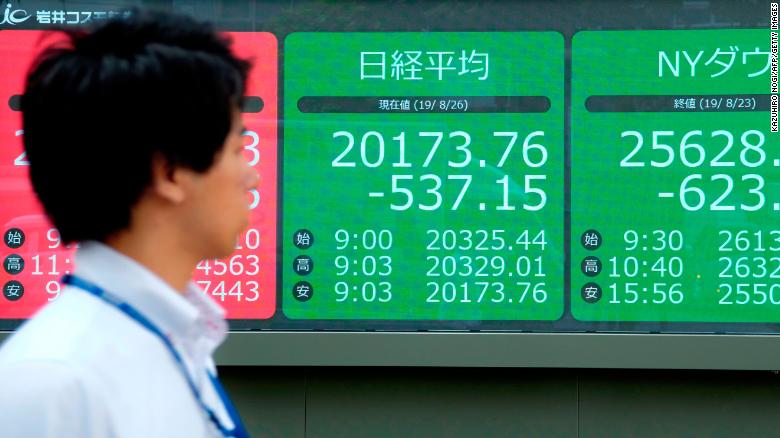Asian markets move higher on hopes for a cooling trade war

Hong Kong’s Hang Seng (HSI) was up 0.3% at market open, gaining ground after posting losses Thursday. Japan’s Nikkei (N225) jumped nearly 1%. Markets in mainland China and South Korea were closed for holidays. Investors are staying positive ahead of highly anticipated trade negotiations between the United States and China in the coming weeks. The two countries have showed signs in recent days that they are interested in easing the tensions between them. US President Donald Trump added to that Thursday while speaking with reporters. While he said he’d rather reach a “whole” trade deal with China, he didn’t rule out the possibility of a smaller one. Some of Trump’s advisers have floated the prospect of a smaller deal that could allow the two sides to agree on issues that are easier to resolve, leaving sticky subjects like intellectual property theft or currency manipulation for later talks.The United States and China are expected to meet again soon for face-to-face talks in Washington.Investors are also watching for the prospect of more stimulus from central banks. The European Central Bank said Thursday that it would cut its interest rate for deposits by 10 basis points to minus 0.5%, pushing rates further into negative territory to support the region’s flagging economy.It also announced that it would start printing money again, promising to buy €20 billion ($22 billion) in bonds and other financial assets per month starting in November.Markets are now waiting for the Federal Reserve’s policy meeting next week. Expectations for a quarter percentage point interest rate cut are at 91.2%, according to CME’s FedWatch tool.Central banks in Japan, Taiwan and Indonesia will all meet next week, too. Japan’s interest rates are already very low, and investors are looking out to see whether the central bank will ease its monetary policy even further in the future. “Monetary easing is gaining traction in developed markets,” wrote analysts for Asia at the Dutch bank ING Group. The analysts added that they don’t think the Bank of Japan “wants to fall behind and risk further economic weakness.” CNN’s Kevin Liptak contributed to this report.







